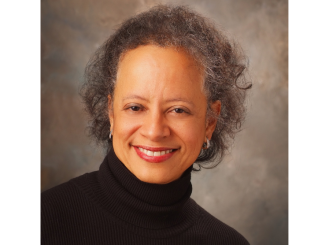Jul 15, 2021
Creating a New Cancer Research Paradigm by Broadening Eligibility Criteria
ASCO and Friends of Cancer Research (Friends, a cancer advocacy organization focused on advancing science, policy, and regulation) have been collaborating to promote broader, more inclusive cancer clinical trial eligibility criteria since 2016. On April 9, 2021, ASCO and Friends co-hosted a virtual event on the topic. Stakeholders from research sites, government, patient advocacy, and industry convened to discuss the real-world benefits and challenges to implementing a new cancer research paradigm where patients are eligible for clinical trials as the default, and only excluded when there is justifiable concern for patient safety.
This is the third in a series of articles in which event and project participants will address audience questions submitted during the April 9 event (some questions have been edited for clarity or length). Questions were answered by Lori J. Pierce, MD, FASTRO, FASCO, 2020-2021 ASCO president.
The first article featured responses from Julia A. Beaver, MD, and the second featured responses from Michael A. Thompson, MD, PhD, FASCO. For more information about the ASCO-Friends collaboration and recommendations for broadened eligibility criteria, please visit the ASCO and Friends websites.
Can you address researchers recognizing more of how biases hinder research design? Systemic racism has to be recognized as part of the problem. We want to increase participation in clinical trials, especially among diverse populations, so how do we make sure all eligible patients are given the opportunity (i.e., asked) to participate in trials?
LP: Implementation of certain ASCO-Friends recommendations can counter biases in research design and increase eligibility for patients from racial and ethnic groups that have been historically underrepresented in clinical trials. For example, customizing laboratory test requirements to the therapy under investigation can eliminate non-scientifically justified historical exclusion criteria that place racial and ethnic minority patients outside the “normal range.”
However, overly restrictive or biased eligibility criteria are only one of many barriers to equitable patient participation in research. One of the greatest barriers to clinical trial participation is that trials are not consistently offered to potentially eligible patients. A recent systematic review and meta-analysis reported that most patients who are eligible and offered cancer trials accept (55%), and there were no differences in acceptance rates between patients who are Black vs those who are white (Unger et al, JNCI, 2020).
ASCO and the Association of American Cancer Centers (ACCC) recently announced that 75 research sites applied and were invited to test a research site assessment tool and implicit bias training program, which are designed to help providers and sites identify and address factors that may impact patient screening for and participation in clinical trials. Over the next several months, a pilot project will assess the feasibility and utility of the tool and training program to improve screening of and offering clinical trials to Black and Hispanic/Latinx patients, in particular.
A research statement will be released in early 2022 with recommendations and evidence-based strategies to ensure patients from historically underrepresented racial and ethnic communities are aware of clinical trials as a treatment option, and routinely included in clinical trials.
What educational tools are being considered to make the eligible populations more informed about the process?
LP: Both ASCO and Friends are committed to providing patients and caregivers with information about how cancer trials work and how they can participate.
My colleagues at Friends’ developed a new site, ProgressForPatients.org, which offers an online education program to bring together patients and their advocates who wish to incorporate their insight into the regulatory process. This training program provides patients with the tools necessary to effectively communicate with drug researchers, developers, and regulators, including a baseline knowledge of the clinical trial process.
In addition, Friends has recently launched a new educational program in partnership with the Black Women’s Health Imperative and Stand Up to Cancer called Project TEACH. The Project TEACH Online Education Course is one piece of a new suite of tools for Black women across the country to learn more about their health and how to empower themselves and future generations. Featuring similar content to ProgressForPatients.org, Black women will also learn how the past has impacted their health and what role clinical trials play in understanding their treatments.
ASCO’s Cancer.Net site has numerous patient-focused resources that explain the drug development and clinical research processes, health disparities in cancer care among specific population groups, and care and treatment options (based on ASCO’s Clinical Practice Guidelines and Provisional Clinical Opinions).
Recently, Cancer.Net posted a blog from Patty Spears, a 20+ year breast cancer survivor and cancer research patient advocate who is a member of the ASCO-Friends project planning group. Patty’s piece, which is written for a patient audience, explains what eligibility criteria is and how it can impact patient participation in trials, as well as the importance of patient-provider discussions about the potential benefits and risks of trial participation.

